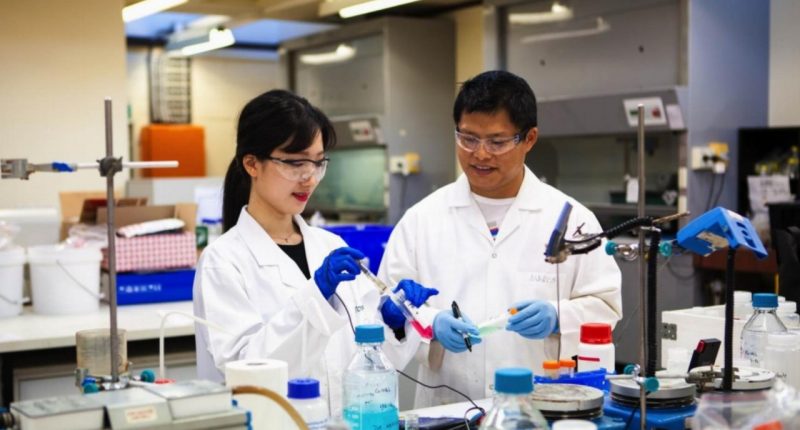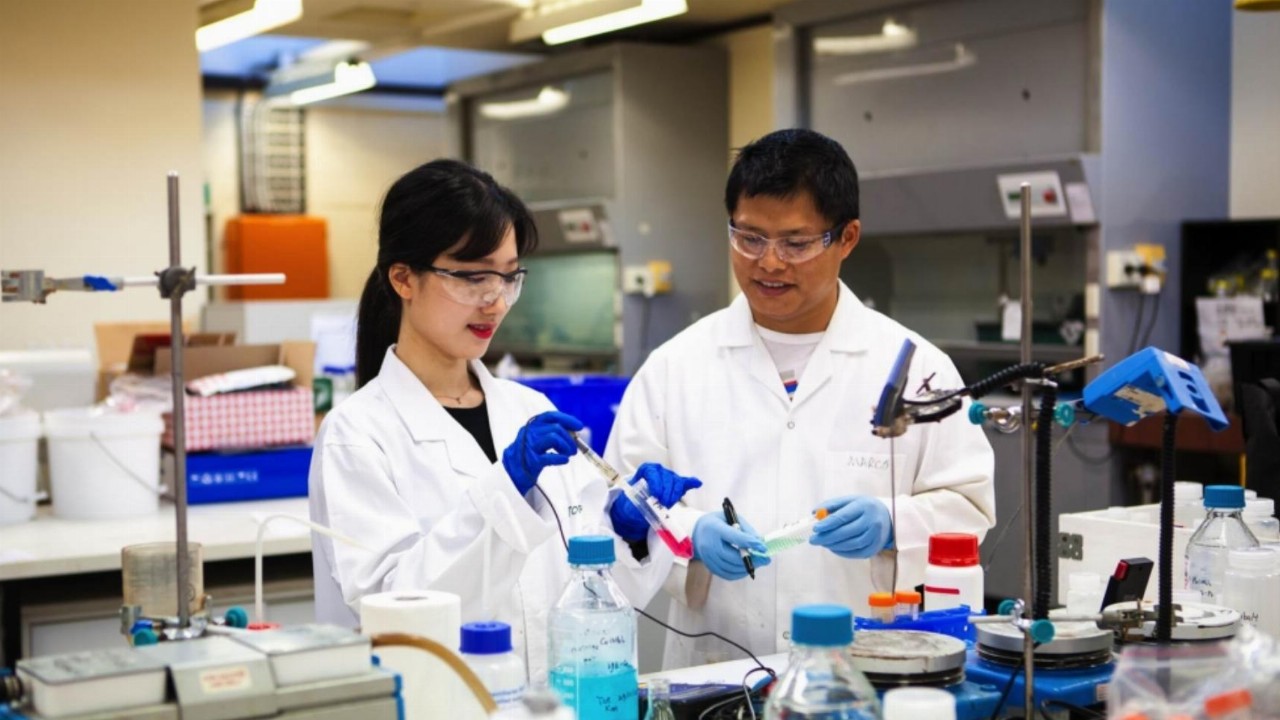- Zeolites are best known for their use in the Chernobyl Nuclear Disaster, helping decontaminate local foods, but the material actually has multiple uses
- The nano material is used in everything from detergents to medicine, as its prism design allows it to act as a sieve — trapping unwanted molecules
- One of the main producers of zeolites is ASX-lister Zeotech (ZEO), which creates synthetic zeolites using its patent-pending propriety technology
- ZEO use kaolin and leached spodumene as a feedstock for its Type A zeolites, which can be sold in animal additives, oxygen, and carbon capture sectors
- With a pilot plant soon to be commissioned, shares in Zeotech are trading at 7.5 cents per share on Thursday, August 5
After the Chernobyl Disaster occurred in 1986, a whole range of environmental clean-up technologies were deployed at the failed nuclear power plant in Ukraine.
One of the lesser-known technologies used was zeolites, which prevented locally produced food such as milk from being contaminated with radioactive ions.
These zeolites worked by essentially acting as a sieve — trapping the radioactive molecules from passing through them with their unique prism shape design.
The usage of zeolites isn’t limited to nuclear disasters though, with the nano material now used in everything from medicine to odour control.
The wide-ranging use of zeolites has helped create a market with an estimated worth of US$5.58 billion (A$7.45 billion).
One of the main players for zeolites here in Australia is the ASX-listed stock Zeotech (ZEO), which creates synthetic versions of the nano-material.
Synthetic zeolites work the same way as their natural counterparts, but they have the added benefit of being able to be designed for specific applications by being created more uniformly.
This consistency means users and producers can confidently rely on the zeolites to stop the specific molecule from passing through.
For Zeotech, the company creates its own synthetic zeolites using its proprietary mineral processing technology.
The technology was developed by a research team at The University of Queensland and ZEO has several patent applications pending.
Managing Director Peter Zardo said the proprietary technology means Zeotech can create synthetic zeolites at a low cost for a variety of different industries.
“The economic benefits in its production process revolve around up to 70 per cent lower energy requirements, a faster production time of up to 80 per cent, and significantly reduced by-product residue when compared to conventional zeolite processing methods,” Mr Zardo said.
The business already owns a kaolin deposit, named the Abercorn Project in Southwest Queensland, and was able to use this kaolin as a feedstock to create its zeolites.
The company is also interested in working with the lithium refinery industry, as leached spodumene can be successfully used as a feedstock when creating zeolites.
ZEO’s MD explained the lithium industry represented a significant opportunity for the company, considering the amount of process residue set to be created as demand for batteries increases.
“Our patent-pending technology has the potential to help reduce the leached spodumene residue waste burden that will be increasing in coming years,” Mr Zardo said.
“The growth in demand for battery precursor lithium hydroxide from lithium refineries, due to its use in the electric vehicle industry, means there will be millions of tonnes of lithium process residue being produced and lithium refineries will be looking for economical solutions to manage their growing tailing streams.”
The company was in the process of scaling up its technology by committing to a dual-feed pilot plant program that creates synthetic zeolites using both kaolin and leached spodumene residue as feedstock.
In support of the pilot program, ZEO has carried out extensive lab test work with The University of Queensland to validate its technology.
The pilot, which was set to be commissioned at the end of this year, would expand on these tests, and confirm the technology at a continuous production level.
“The pilot program’s aims are to further optimise the flowsheet of the company’s low-cost synthetic zeolite manufacturing technology to de-risk future commercial investment, attract off-take partners and support potential licensing opportunities,” Mr Zardo said.
“It will also deliver continuous production of customer-scale synthetic zeolite samples from kaolin and lithium process residue feeds, validating our patent-pending technology.”
It’s here the world of zeolites truly expands, as the material has application in dozens and dozens of industries.
The nano materials were extremely popular for use in detergents, with millions of tonnes of synthetic zeolites used each year as a substitute for phosphates.
Hospitals rely on zeolite-laden products to stop bleeding in wounds, with zeolites also used in kidney dialysis machines and as an adsorbent in oxygen reactors.
The nano material can even drive down pollution, reducing the amount of emissions created from cars, and help heal contaminated land.
Zeotech said for its zeolites, it plans to focus on three industries — animal feed, carbon capture, and oxygen production.
The company is working with Griffith University on an agronomics program that is looking at the potential for zeolites to be used as a fertilizer delivery platform.
The benefits of including the material were that they destroy pesticides, retain more moisture in the soil, and even improve the soil’s carbon structure.
“Our in-house product development will be focused around cleantech and aiding sustainable food production, including soil and fertilizer additives and mycotoxin animal feed additives business,” Mr Zardo said.
“Additionally, our products work as environmental management solutions for both the lithium refinery cleantech and carbon capture industries as well as potential adsorbents for oxygen production.”
The company has already provided synthetic zeolites for a leading biotech company, Bioproton, which manufactures animal feed additives.
Together the businesses will examine whether the nano materials can help capture seven types of toxins created by moulds that were commonly present in animal feed.
ZEO also announced in March it was launching a carbon capture research program to examine how zeolites can be successfully used in the growing carbon emissions reduction industry.
“ZEO will explore the potential of leveraging its novel and proprietary mineral processing technology for the low-cost synthesis of synthetic zeolites to deliver economically feasible environmental management solutions for carbon capture,” Mr Zardo said.
“Synthetic zeolites are already used to separate CO2 from gas streams in industrial applications and ZEO aims to study proven carbon capture and utilization technologies to see if the company can improve these using low-cost adsorbents, which range from membrane technologies to pressure swing adsorption reactors.”
The company said considering the wide-ranging application for its synthetic zeolites, it was excited to soon be commissioning the new pilot plant and begin selling its nano materials to the world.
Zeotech shares were trading at 7.5 cents per share on Thursday, August 5.








